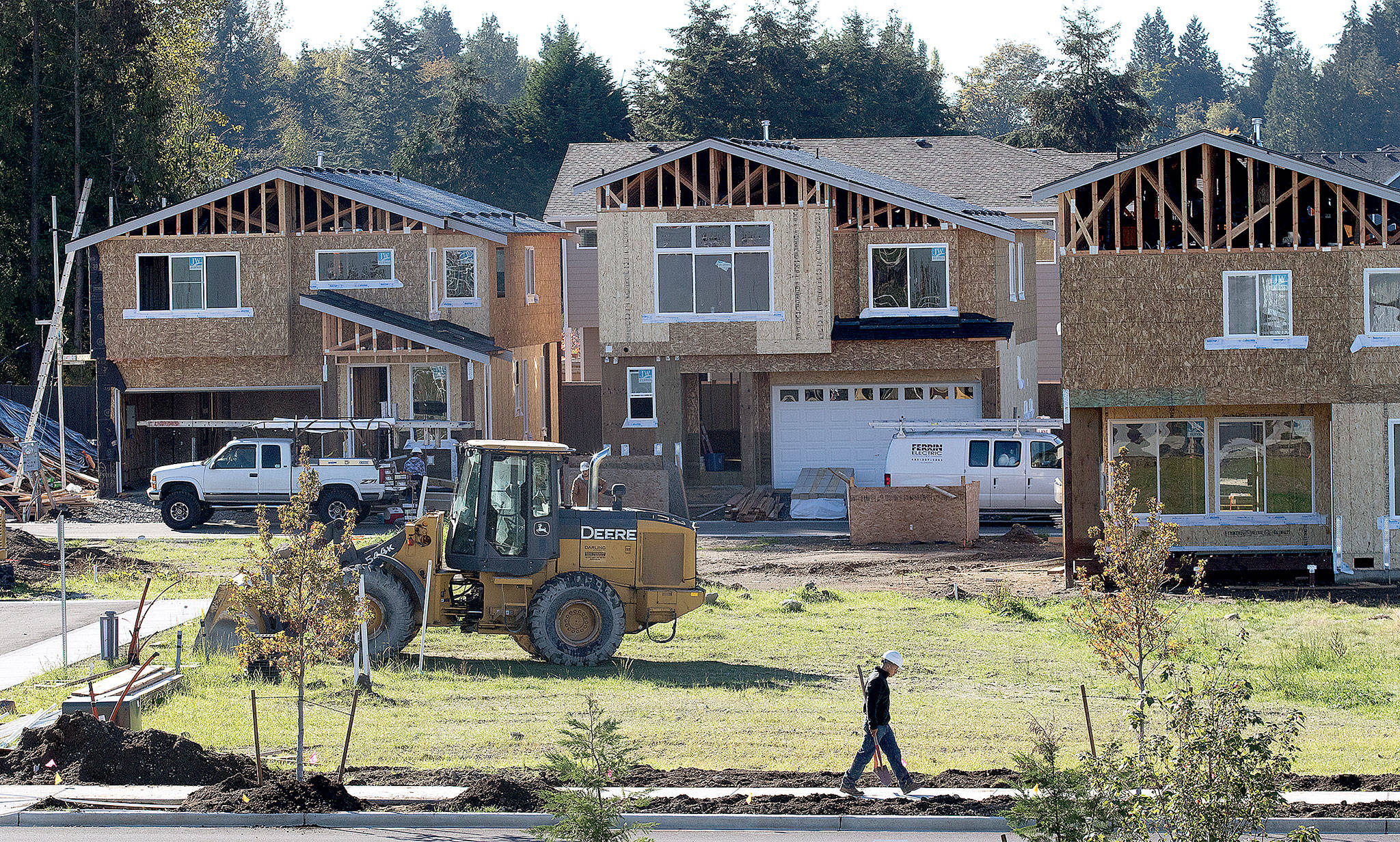EVERETT — It’s a common gripe about new housing developments: Why don’t they pay for all the new schools and roads to serve them?
The Snohomish County Council plans to take another look at the education part of that puzzle next week.
School-impact fees help pay for new construction projects that otherwise would be funded through property taxes. They also make new homes more expensive.
A year ago, the council capped school-impact fees at $7,000 per home. The council took that step after the Northshore School District attempted to raise its impact fee to $10,563 per single-family home, up from nothing.
That would have been the highest fee for any school district in the county. The Everett School District collects $6,950, the second-highest. Both districts are seeing big enrollment gains as formerly rural areas they cover are remade into suburbs.
Another growing district, Lake Stevens, collects $6,624 per home.
Northshore straddles the King-Snohomish County line. The northern part of the district includes parts of Bothell, Brier and unincorporated neighborhoods in the North Creek area with some of the fastest growth in the region.
The impact-fee amounts are based on specific estimates of what it costs to build new schools and other infrastructure to serve each new home. In Northshore, that totals more than $21,000 — after factoring in money the districts receive from the state. They’re only allowed to collect up to half that amount through impact fees.
The county is trying to limit any major jumps in cost, to put the building industry at ease.
“What’s most important to homebuilders regarding fees is certainty,” said Mike Pattison, a lobbyist for the Master Builders Association of King and Snohomish Counties. “Steep increases in fees in the middle of a process can undermine a project.”
The builders group is worried about predictability more than the actual dollar amount, Pattison said.
Fees are paid when the county issues a building permit. Developers want the county to freeze the amount owed earlier in the approval process.
The council is set to discuss the impact-fees cap at 10:30 a.m. Wednesday. Council members could let the cap go away, keep it in place a bit longer or impose new rules about how fast it can rise.
Noah Haglund: 425-339-3465; nhaglund@heraldnet.com. Twitter: @NWhaglund.
Talk to us
> Give us your news tips.
> Send us a letter to the editor.
> More Herald contact information.

























